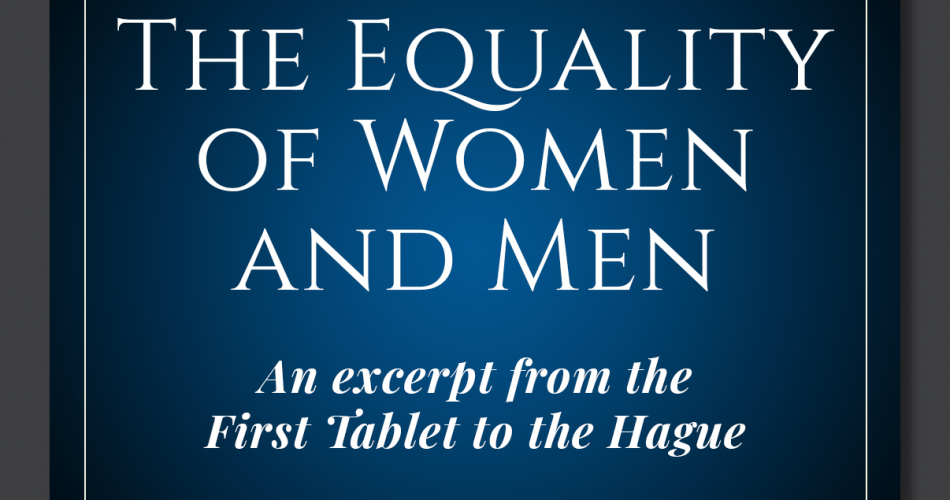And among the teachings of Bahá’u’lláh is the equality of women and men. The world of humanity has two wings—one is women and the other men. Not until both wings are equally developed can the bird fly. Should one wing remain weak, flight is impossible. Not until the world of women becomes equal to the world of men in the acquisition of virtues and perfections, can success and prosperity be attained as they ought to be.
‘Abdu’l-Bahá
و از جملۀ تعالیمِ حضرتِ بهاءالله وحدتِ نساء و رجالست که عالمِ انسانی را دو بال است یک بال رجال و یک بال نساء تا دو بال متساوی نگردد مرغ پرواز ننماید اگر یک بال ضعیف باشد پرواز ممکن نیست تا عالمِ نساء متساوی با عالمِ رجال در تحصیلِ فضائل و کمالات نشود فلاح و نجاح چنانکه باید و شاید ممتنع و مُحال
حضرت عبدالبهاء
This is a passage from ‘Abdu’l-Bahá’s first Tablet to the Hague. It was written on 17 December 1919, addressed to the Executive Committee of the Central Organization for a Durable Peace in response to a letter that body had sent Him nearly four years earlier, and dispatched to the Committee at the Hague by the hands of a special delegation.
We are publishing this passage (our 50th publication) on the equality of women and men, a significant one in the history of the world’s religions, in commemoration of the martyrdom of Ṭáhirih, which took place 169 years ago in late August 1852.
This is the first publication from the Utterance Project that features the name of a Central Figure (Bahá’u’lláh). Notice how, in the original Persian, it is preceded by the word ḥaḍrat, a title used to hold someone in very high esteem. The respectful norm among Bahá’ís who speak Persian and Arabic is to preface the titles of the Báb, Bahá’u’lláh, ‘Abdu’l-Bahá, and Shoghi Effendi with this word.
Original Sources
Further References
